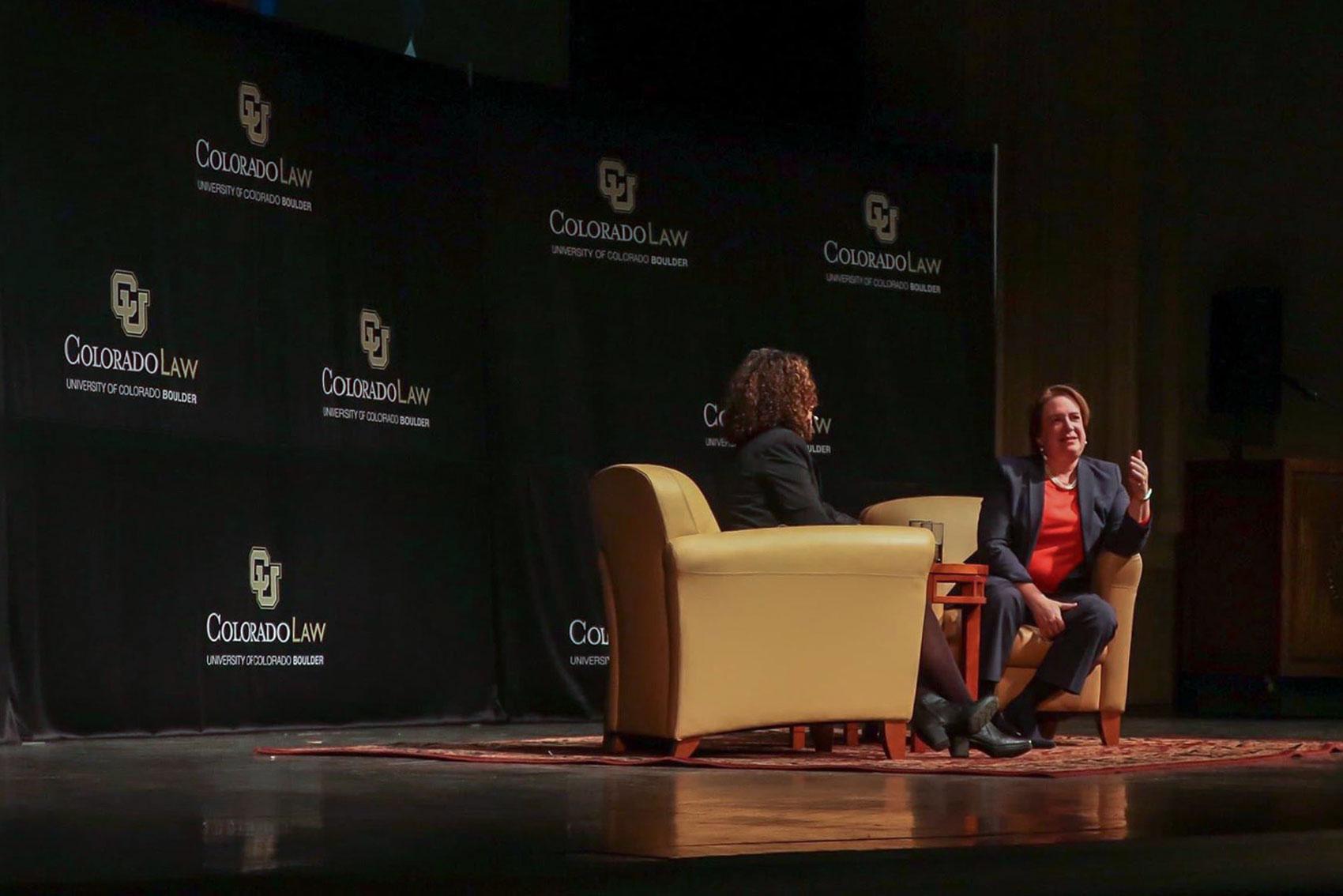
U.S. Supreme Court Justice Elena Kagan was in Boulder Tuesday for a packed fireside chat-style lecture, where she amusingly reflected on her career and spoke about how politics come into play on the court.
One question on many people’s minds was how the court maintains its independence in today’s partisan and political climate.
Despite there being many hot-button issues, Americans shouldn’t jump to conclusions too quickly, Kagan said. She noted the court doesn’t always operate on 5-4 votes or liberals versus conservatives.
“I do think that there are certain sorts of issues...where there are really different ways of looking at those issues,” she said. “I don't think that that's a matter of partisanship but I do think it is a matter of different ways of looking at the Constitution."
She said about half the cases a year are decided unanimously and it would be hard to call that political.
David Arkell of Denver, a practicing lawyer since the 70s, was curious about the dynamic between Justices on the court with opposing political views like Kagan, Ruth Bader Ginsburg, Neil Gorsuch and Brett Kavanaugh.
“I think, particularly given what we’re going through today in this country, (Kagan’s) political and legal philosophy are critical to our country,” he said. “The law doesn’t exist in a vacuum, unfortunately.”
Kagan said working on the court is quite collegial and there are good friendships between colleagues who disagree about a variety of things. The group shares a lot of lunches together and she quoted former Justice Antonin Gregory Scalia, who died in 2016: “If you take this personally, you’re in the wrong business.”
She said one thing that binds the Justices together is the fact that there are only eight other people in the world who know what their job is like.
“It’s a job where you can’t talk to a lot of people about it,” she said. “There we all are and it’s just the nine of us doing this thing and we’re the only kind of understand what the experience is like.”
Audience members laughed throughout the lecture with Kagan’s quick-witted responses. She was asked about being named the most “hip” justice. “It might be a low bar,” Kagan joked.
Her advice to law students: Don’t plan. She said for every job she received, she was rejected by three others.
In 1999, former President Bill Clinton nominated Kagan to the U.S. Court of Appeals for the District of Columbia and her nomination eventually lapsed after no hearing was scheduled.
“I ended up on the court anyway,” she said, not taking herself too seriously. “I’m looking forward to keeping this for a while.”
Kagan, one of three women on the court, was in Boulder to deliver CU’s 8th annual Stevens Lecture. The lecture is named after Supreme Court Justice John Paul Stevens, who’s seat Kagan replaced. She was nominated to the Supreme Court in 2010 by former President Barack Obama.









